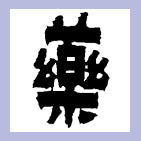Differences, Advantages, and Disadvantages Between Traditional Chinese Medicine (TCM) and Western Medicine
Traditional Chinese Medicine (TCM) and Western Medicine represent two distinct medical systems, exhibiting significant differences in theoretical foundations, diagnostic methods, treatment approaches, medication sources, preventive emphases, and management of chronic conditions. Each system also boasts unique advantages and disadvantages.
Differences
-
Theoretical Foundations:
- TCM: Centers around traditional theories such as Yin-Yang, Five Elements, meridians, and qi-blood, emphasizing the holism and systemic nature of the human body.
- Western Medicine: Relies on modern sciences like anatomy, physiology, and pathology, focusing on microscopic analysis and treatment of diseases.
-
Diagnostic Methods:
- TCM: Primarily gathers disease information through observation (inspection), auscultation and olfaction, inquiry, and pulse diagnosis, comprehensively judging the nature and syndrome of the disease.
- Western Medicine: More reliant on various examination means, such as laboratory tests and imaging studies, to obtain objective data indicators for diagnosis.
-
Treatment Approaches:
- TCM: Emphasizes adjusting the body's balance, utilizing Chinese herbal medicines, acupuncture, moxibustion, massage, and other methods to strengthen the body and eliminate pathogens, stimulating the body's self-repair capabilities.
- Western Medicine: Often employs medications, surgery, radiotherapy, and other direct treatments targeting the cause and location of the lesion.
-
Medication Sources:
- TCM: Derived mainly from natural plants, animals, and minerals, processed and prepared.
- Western Medicine: Primarily chemically synthesized or biologically produced.
-
Preventive Emphases:
- TCM: Focuses on health preservation and disease prevention, emphasizing prevention before illness and prevention of disease progression.
- Western Medicine: Emphasizes vaccination and public health measures for prevention.
-
Management of Chronic Conditions:
- TCM: Has certain advantages in the management and long-term care of chronic conditions, improving symptoms and quality of life.
- Western Medicine: More prominent in controlling acute exacerbations and specific indicators.
Advantages and Disadvantages
TCM:
-
Advantages:
- Emphasizes holistic concepts and individualized treatment, focusing on adjusting the body's balance.
- Utilizes natural medications and therapies with relatively fewer side effects.
- Has advantages in managing chronic conditions and long-term care.
-
Disadvantages:
- Diagnostic methods are relatively subjective and may be influenced by the doctor's experience and subjective judgment.
- Fewer medication options may limit treatment selectivity and effectiveness.
- May not be as rapid or effective in treating infectious diseases and certain acute conditions as Western Medicine.
Western Medicine:
-
Advantages:
- Objective diagnostic methods rely on medical instruments and laboratory tests, improving diagnostic accuracy.
- A wide range of medications, including antibiotics and antivirals, provide multiple treatment options.
- Has significant advantages in emergency departments, intensive care, and surgical treatment.
-
Disadvantages:
- Larger side effects, with certain medications potentially harming the body.
- May not be as meticulous or comprehensive in treating certain chronic and complex conditions as TCM.
- Higher treatment costs, including medication and examination fees.
In summary, TCM and Western Medicine each have their unique advantages, disadvantages, and areas of application. In practical application, the most suitable medical system should be chosen based on the patient's specific circumstances and disease type. Additionally, with the continuous development of medicine, the integrated treatment approach combining TCM and Western Medicine is increasingly gaining attention and recognition.
